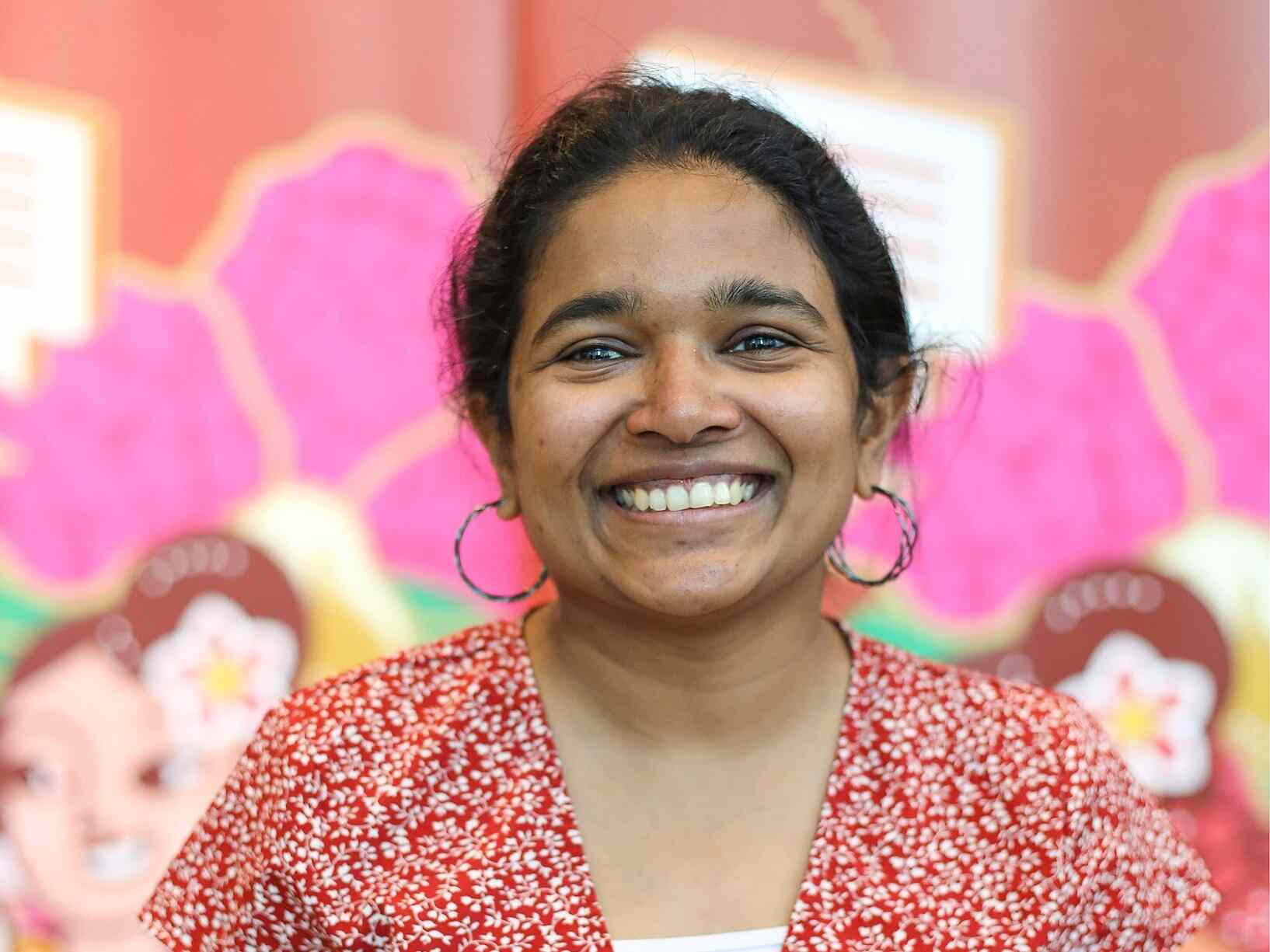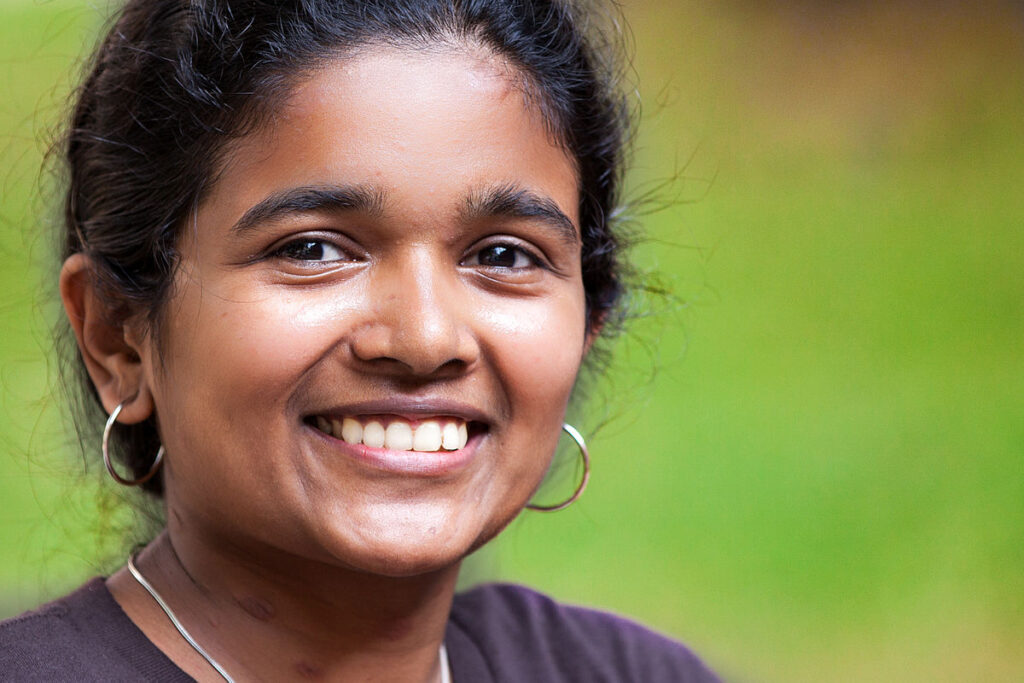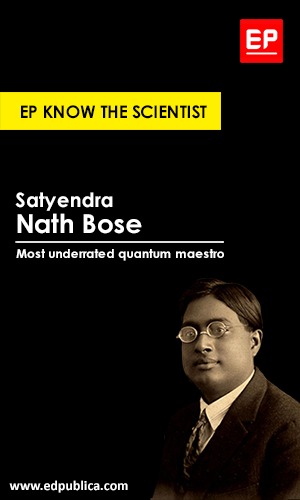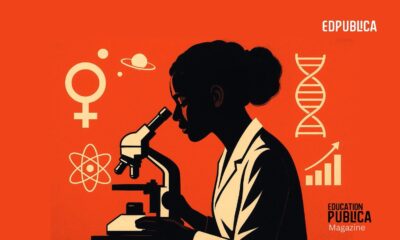Society
How Netha Hussain uses Wikipedia to fight health misinformation
Meet Netha Hussain, the India-born medical doctor in Sweden who has garnered widespread recognition for her unwavering commitment to combating medical misinformation.

As social media became popular, so did the flood of information. This is the post-truth era of content explosion, where unreliable news and information spread like wildfire. Fake news comes in many forms, depending on one’s interests and religious frameworks. It was rampant throughout the COVID-19 pandemic. In such a complicated time, it assumes great significance to lead the fight against fake information. When the battle is against health misinformation, it becomes a noble act.
This is Netha Hussain, a Sweden-based doctor and Wikimedian who has been relentlessly fighting against medical misinformation for the last 14 years. Born in the southern Indian state of Kerala, Netha holds a PhD in Clinical Neuroscience from the University of Gothenburg, Sweden. She has received the Honourable Mention Award from the Wikimedia Foundation in recognition of her fight against fake information and the Open Source Academic Award from the renowned American company Red Hat for health articles written on Wikipedia.
Organizations, including the United Nations, have praised Netha’s efforts. EdPublica brings you the story of Netha’s fight against medical misinformation, which also reminds us of the importance of scientific literacy. Recently, she has been working on mapping and bridging the knowledge gaps related to women’s health on the English Wikipedia. This WikiProject is an initiative to identify knowledge gaps and improve the quality of content related to women’s health in Wikimedia projects.

The news came at a time when the COVID-19 pandemic was at its peak. “A few people were hospitalized after eating a fruit that not many people had heard of. It was poisonous. They believed that eating it would help them fight against COVID-19. They got that information from the Internet.”
It is recurring incidents like the one above that give more strength and relevance to the struggle of this young doctor in her inexorable fight against false information related to health that fills the online space. Many methods had been touted as treatments that offered no guarantee of preventing the impact of the COVID-19 virus. She laid out all this. The Wikipedia article written by Netha was widely discussed globally. Organizations like the United Nations mentioned this Indian woman doctor on their official social media platforms and shared her video.
Learning to spot fake information should start from childhood. The way science is taught should be changed
If we don’t…
Netha has been writing articles on Wikipedia for over 14 years. She started by writing an article about Chammanthi (a spread typically associated with Indian cuisines). Later, the young doctor wrote on many subjects, with articles focused on COVID-19 being the most popular. Settled in Sweden, she is a clinical neuroscientist with an interest in research.
“People trust me because I am a doctor. Having a medical degree helps combat fake news. Wikipedia has very few medical editors, which also increases my responsibility. If we don’t, no one else will. No one knew anything about COVID-19 at the beginning. Later, I learned it for my profession. It has also been used in Wikipedia,” states Netha.
The ‘Viral’ Article
“I had to write notes as part of my studies. So, I thought that if I go ahead and write it on Wikipedia, it will be useful for the rest of us. Whatever is being taught that day, I look it up on Wikipedia while studying it. Then I try to improve that article. And then it became an easy process,” Netha recalls her journey.

Netha says that when the flow of writing came, the later work changed to a way of being able to articulate points and find references. She writes mostly health-related articles on Wikipedia. Being a voluntary activity, there is no financial benefit to it. According to Netha, the most reliable information is written in a language that people can easily understand.
“It is a very difficult task to prevent and eliminate fake information,” says Netha. “It’s like a genie out of a bottle. Once it’s released, it’s awfully hard to get back in. It will spread very quickly.”
“Fake news has been a problem since the start of COVID. If you eat garlic, you will not get COVID. COVID will not come in the summer. So many rumors were spread. Fake propaganda was active here when COVID first started in China,” Dr. Netha points out.
As mentioned earlier, she has been a Wikipedia volunteer for over 14 years and is a prominent Wikimedian. Wikimedians are those who write and edit articles on Wikipedia, the free online encyclopedia. Netha’s Wikipedia article, List of unproven methods against COVID-19, was seriously discussed across the world. She detailed the list of non-scientific methods related to COVID-19.
At the same time, Netha reminds us that Wikipedia is never a definitive source. “However, there is very little misinformation because everyone is there to help others. Mostly good information. Many editors, like me, watch Wikipedia pages. Everything will be checked to see if someone is editing and if it has credibility. It’s just that it can sometimes take time to spot errors in poorly read articles.”
Dr. Netha hails from Kunnamangalam, a town located in the Kozhikode district of South Indian state Kerala. She moved to Sweden to pursue her PhD studies after graduating from Calicut Medical College with a degree in medicine and surgery
Netha’s lead article on COVID-19 was one of the most read pieces. The article, titled The COVID-19 Pandemic, was read by more than 40 million people in March–April 2020 alone. “No other article has been read by so many people in such a short period of time. So, it is a record on Wikipedia itself,” says Netha.
“When people rely on Wikipedia, they should be given good information, or they will go somewhere else and be cheated. That’s why I think this work is important,” says Netha confidently.
She points out that there are many reasons why we are misled by fake information. “One of the reasons is our biases. Some illnesses do not require modern medicine. Some require fasting. We make sure that our understandings are somehow correct and reject those that are not. We believe in messages sent by someone. And the flood of information is a problem.” Netha says the key is to teach people how to spot fake information. Learning to spot fake information should start in childhood. The way science is taught should be changed.
Dr. Netha hails from Kunnamangalam, a town located in the Kozhikode district of the South Indian state of Kerala. She moved to Sweden to pursue her PhD studies after graduating from Calicut Medical College with a degree in medicine and surgery.
Society
How the Iran–Israel–US Conflict Ripples Through India’s Economy and Energy Future
The immediate reality is uncertainty: higher freight, rising insurance, volatile crude, jittery exporters

The tremors began far from India’s shores. US and Israeli strikes on Iran, followed by retaliatory actions, have redrawn fault lines across West Asia. But in New Delhi, in oil refineries along the western coast, and in rice mandis across Haryana and Punjab, the aftershocks are already being felt.
“US and Israel attacks on Iran, and subsequent counter attacks have exposed a new wave of geopolitical risks,” notes a policy briefing from Climate Trends, reviewed by EdPublica. For India — bound to Israel by strategic ties and to Iran by history and geography — the moment is fraught with complexity.
At the heart of the unfolding crisis lies a narrow maritime artery: the Strait of Hormuz.
The Strait of Hormuz: India’s Energy Lifeline
Nearly a quarter of the world’s crude oil flows through the Strait of Hormuz — a chokepoint linking West Asian producers to global markets. For South Asia, the dependency is sharper. Around 40% of the total crude oil consumption of India, China, Japan and South Korea transits this passage.
India imports nearly 90% of its crude oil. Of its daily imports, 2.5–2.7 million barrels per day — largely from Kuwait, Saudi Arabia, Iraq and the UAE — pass through these contested waters.

The risks are no longer theoretical. According to reports, Iran has been relaying warnings over VHF radio to ships, cautioning that passage may not be guaranteed. Insurance pricing for shipping has risen by 50% overnight. Freight rates are climbing. The Director General of Shipping has issued a circular advising stakeholders not to deploy Indian crews in Iran.
If Iran’s 3.3 million barrels per day production is disrupted, oil prices could rise 9–15%, pushing crude from a base of $70 per barrel to roughly $76–81.
For India, the impact would be “more price driven and not volume driven”. Yet price shocks ripple quickly — widening the current account deficit, weakening the rupee and feeding domestic inflation.
Vivek Y. Kelkar, researcher working at the intersection of geo-economics and sustainability, warns: “Much depends on how long the conflict endures and whether risks to the Persian Gulf and the Strait of Hormuz persist… For India, the impact would be indirect but significant. With nearly 90 percent import dependence, every $10 per barrel rise increases the annual import bill by about $13–14 billion, widening the current account deficit, pressuring the rupee and adding to inflation.”
He adds that China — which buys roughly 90% of Iran’s crude exports — could pivot more aggressively toward Russian, Iraqi, Saudi and West African grades if Iranian volumes shrink. “If Beijing pivots toward the same Russian or Atlantic Basin supplies that India relies on for diversification, India’s energy security could become more expensive and more contested. The likely outcome is not deep scarcity, but tighter global balances, higher prices and diminished negotiating leverage for Indian refiners.”
From Oil Tanks to Rice Fields
The consequences extend well beyond petrol pumps.
In the weeks before the conflict escalated, Iranian importers had placed large orders for basmati rice, pushing local prices up by about ₹10 per kg. Iran accounts for roughly 25% of India’s basmati exports; Iraq another 20%. Together, that’s over 2 million tonnes valued at more than $2 billion annually.
Uncertainty now looms over these trade flows. Tea exports too may take a hit — nearly ₹7 billion worth was exported to Iran in 2024–25.
More broadly, Middle Eastern countries including Iran, Bahrain, Kuwait, Qatar and the UAE account for bilateral trade worth about $117.32 billion, with the UAE alone contributing nearly $100 billion. Any regional escalation directly threatens these ties.
The UAE Factor: A Stable Hub Under Strain
Dubai has long been viewed as West Asia’s insulated commercial gateway — a financial and logistics hub even when politics elsewhere burned. But the conflict “fundamentally alters Dubai’s longstanding reputation as a politically insulated financial and trade hub”. India and the UAE have been expanding cooperation in renewables, green hydrogen and critical minerals. The India–UAE Comprehensive Economic Partnership Agreement (CEPA), signed in 2022, marked India’s first such accord in the MENA region. Escalation now risks slowing joint ventures and technology exchanges just as clean transition investments were gathering pace.
“India’s policy of strategic autonomy has so far helped it navigate the choppy waters of geopolitics but the balancing act has become increasingly tough. The conflict in west Asia and its repercussions raise the risks to its supply chains, test energy security and increase insurance costs and fuel inflation if energy prices remain elevated, as is expected if the Strait of Hormuz is blocked… Yet, despite the rising risks India’s economy and markets are relatively better placed to ride this geopolitical storm,” Archana Chaudhary, Associate Director at Climate Trends, notes.
A Clean Energy Imperative, Not Just a Climate Goal
The crisis may also sharpen India’s clean energy calculus. Elevated oil costs increase dollar demand, typically putting downward pressure on the rupee. Costlier fuel filters into transportation, logistics and eventually food prices. Renewable energy supply chains — including critical minerals — could also be disrupted, as significant shipping traffic flows through Hormuz
Yet analysts see opportunity in the turbulence. “The recent strikes only reinforce the validity of India’s long-standing principle of strategic autonomy. In an increasingly volatile West Asian landscape, the wisdom of accelerating our clean energy ambitions becomes even more apparent for energy security. Reducing dependence on imported conventional energy sources, i.e. oil and gas, through rapid deployment of clean technologies is no longer just a climate imperative but a strategic necessity… In this fractured geopolitical order, India must deepen the momentum toward clean energy transition and technological self-reliance to insulate its growth trajectory from external shocks,” Aarti Khosla, Director, Climate Trends, argues.
Vaibhav Chaturvedi, Senior Fellow at CEEW, echoes the urgency: “The US-Iran war doesn’t bode well for the global energy economy. In the short run, we can expect an increase in oil prices. In the medium term, if the war drags, there would be a negative impact on the global economy. The event will undoubtedly create headwinds for India’s economy. India will do well to leverage its relationships to access cheaper oil in this scenario. This is a moment to bring investments to ramp up plans to scale up electrification of the power and transport sector faster as the ultimate solution to energy security.”
Duttatreya Das, Energy Analyst–Asia at Ember, calls this a turning point: “The past few months have been challenging for India’s crude supplies—first the shift away from discounted Russian Urals to avoid U.S. tariffs, and now the potential volume impact from disruptions in West Asia. While these disruptions may be short-term, India cannot simply afford to remain hostage to geopolitical volatility… Moments like these offer an opportunity to recalibrate its mobility policy, through electrification and a faster expansion of ethanol blending in the near term.”
A Moment of Strategic Testing
In South Block, a Cabinet meeting chaired by the Prime Minister signals the seriousness of the moment. OPEC has indicated it may adjust production to maintain market stability. India’s long-held doctrine of strategic autonomy — balancing relationships across rival blocs — is now under stress. After US pressure restricted purchases of Russian oil, India diversified more toward Gulf suppliers, inadvertently deepening its exposure to Hormuz-linked risks. Though it imports from over 40 countries, geography and geopolitics cannot be entirely diversified away.
The immediate reality is uncertainty: higher freight, rising insurance, volatile crude, jittery exporters.
The longer-term question is whether this crisis accelerates a structural pivot. In the shadows of tankers and warships, India’s energy transition debate is no longer abstract. It is entangled with inflation, trade, currency stability and food security.
Sustainable Energy
India’s EV Investment Story: Rs 2.23 Lakh Crore Deployed, But 82% of Capital Needs Still Unmet
India’s charger-to-EV ratio continues to lag far behind global benchmarks—a structural weakness that could slow consumer adoption.

India’s electric mobility transition has entered a decisive yet challenging phase. A new analysis from the Institute for Energy Economics and Financial Analysis (IEEFA) reveals a complex narrative: while the country’s EV sector has attracted an impressive Rs 2.23 lakh crore in investments between 2020 and 2025, this represents just 18% of what India must mobilise by 2030 to meet its ambitious clean transport goals.
Unfolding against the backdrop of India’s expanding climate commitments and rising consumer interest in EVs, the report offers a data-rich look into where capital is flowing, where it is missing, and what structural challenges remain hidden beneath headline growth.
A Five-Year Surge in Capital—But Not Enough
Between 2020 and 2025, the EV ecosystem—spanning manufacturing facilities, public subsidies, and charging networks—absorbed Rs 2,23,119 crore in funding. This includes:
- Manufacturing investments supported primarily through internal accruals
- Government subsidies, especially through FAME (Faster Adoption and Manufacturing of Hybrid and Electric Vehicles)
- Charging infrastructure, which remains under-capitalised
Despite this influx, India’s 2030 targets—30% of private cars, 70% of commercial vehicles, 40% of buses, and 80% of two- and three-wheelers going electric—require a total of Rs12.5 lakh crore in investments. That leaves Rs 10.26 lakh crore still unmet.
“While Rs 2.23 lakh crore is a significant capital mobilisation in just five years, it represents only about 18% of the Rs12,50,000 crore required by 2030,” says co-author Subham Shrivastava. “Mobilising the remaining INR10,26,881 crore (USD117.82 billion) by 2030 will require systemic financing reforms.”
The Anatomy of EV Capital
A closer look at the numbers reveals how India’s EV push has been financed so far.
Internal reserves dominate
Manufacturers contributed the bulk of realised investment through their own internal accruals—Rs1,59,701 crore. Debt followed at Rs36,738 crore, while equity accounted for Rs 6,455 crore. But these aggregates obscure important differences across vehicle types.
The three-wheeler segment, driven by a fragmented OEM landscape and low capital-intensity operations, leaned heavily on internal funding and limited debt. Meanwhile, two- and four-wheeler categories showed more diverse capital structures due to the presence of established players and higher investment requirements.
“From 2020–2025, electric three-wheelers attracted the largest share (~78%) of investments among vehicle segments, due to the segment’s maturity and commercial-scale operations alongside its fragmented OEM base,” explains co-author Saurabh Trivedi. “However, recent investment announcements in 2024 and 2025 reveal a pivot towards electric four-wheelers, driven by rising demand for electric cars.”
Charging Infrastructure: A Massive Funding Gap
Perhaps the most critical bottleneck in India’s EV story is the underdeveloped charging ecosystem.
From 2020 to 2025, investments in public charging constituted just 9.6% of the ₹20,600 crore estimated need for 2030. While the country expanded its public chargers from 5,151 to 39,485 over five years, utilisation rates remain low and profitability uncertain.
“Investment in EV charging faces challenges due to limited investor interest, as public EV charging remains an unproven business model, with many charging stations reporting low utilisation rates and high initial costs,” notes co-author Charith Konda.
India’s charger-to-EV ratio continues to lag far behind global benchmarks—a structural weakness that could slow consumer adoption.
The Silent Brake on India’s EV Growth
Beyond infrastructure, the economics of financing EVs present another hurdle.
Commercial EV borrowers currently face interest rates of 15–33%, levels that wipe out the total cost-of-ownership advantage EVs typically offer.
“The binding constraint is not a lack of capital in the system—it is how EV risk is priced,” Shrivastava says. “When lenders remain uncertain about battery performance, residual values, and cash-flow stability, that uncertainty gets reflected in higher interest rates.”
High financing costs disincentivise fleet operators and businesses from transitioning to EVs. As a result, manufacturing capacity cannot scale at the pace needed, creating a demand-supply mismatch.
A New Model for Mobilising Capital
To unlock the remaining ₹10.3 lakh crore needed over the next five years, IEEFA proposes a shift away from subsidy-led growth toward structural risk-sharing.
The solution: a coordinated integrated EV financing platform that consolidates:
- Partial credit guarantees
- Residual value protection for batteries
- Battery-as-a-service (BaaS) arrangements
- Co-lending structures
This platform would be anchored by development finance institutions with relevant expertise—SIDBI for MSMEs and small commercial fleets, and IIFCL for large commercial deployments.
“Manufacturers need predictable demand signals to scale capacity, but demand depends heavily on affordable credit,” Trivedi adds. “An integrated platform that shares risks appropriately across lenders, OEMs, and public institutions can reduce financing costs and unlock commercial-scale deployment.”
The idea is that as EV adoption grows and asset performance data becomes more robust, lenders will recalibrate risk premiums downward. Over time, underwriting practices could standardise, securitisation markets may emerge, and capital could recycle more efficiently.
A Self-Reinforcing Investment Loop
The report outlines a possible virtuous cycle:
- Lower financing costs stimulate EV adoption
- Higher sales volumes create better performance data
- Improved visibility reduces risk perception
- Lower risk draws in more capital
- Manufacturers scale up, benefiting from economies of scale
- Reduced costs further accelerate adoption
This dynamic, according to IEEFA, is essential for unlocking a mature and self-sustaining EV ecosystem.
A Race Between Ambition and Capital
India’s electric transport ambitions are clear and achievable—but only if the investment framework evolves as rapidly as consumer interest and technological capability.
The core message from the data is unmistakable: India is moving in the right direction, but far too slowly. Recognising this, the authors warn that the next five years will determine the trajectory of India’s EV revolution. The country must transition from policy-driven electrification to a financially self-sustaining ecosystem capable of attracting large volumes of private capital at scale.
The question is no longer about policy commitment but about the cost, structure, and flow of capital in an evolving, high-potential sector.
Climate
More Shade for the Rich: Study Exposes Global Urban Heat Inequality
New MIT research shows how wealthier neighbourhoods enjoy more tree shade, exposing global heat inequality and offering solutions for fairer urban cooling.

As extreme heat becomes a growing global concern, one of the most effective cooling tools remains remarkably simple: trees. Research has long shown that greater tree coverage in cities helps reduce surface temperatures, improve public health outcomes, and make walking more comfortable in high heat.
Yet a new international study led by researchers at MIT reveals that access to this natural relief is far from equal. Tree cover — and the shade it provides — varies drastically within cities, closely tracking neighborhood wealth.
“Shade is the easiest way to counter warm weather,” said Fabio Duarte, an MIT urban studies scholar and co-author of the study, in a media statement. “Strictly by looking at which areas are shaded, we can tell where rich people and poor people live.”
The research team analyzed sidewalk shade in nine cities across four continents: Amsterdam, Barcelona, Belem, Boston, Hong Kong, Milan, Rio de Janeiro, Stockholm, and Sydney. Despite major differences in climate, wealth, and urban form, every city showed the same trend: affluent areas consistently enjoy more tree-shaded sidewalks.
Duarte noted that this imbalance was striking even in cities globally recognized for greenery. “When we compare the most well-shaded city in our study, Stockholm, with the worst-shaded, Belem in northern Brazil, we still see marked inequality,” he said in a media statement. “Even though the most-shaded parts of Belem are less shaded than the least-shaded parts of Stockholm, shade inequality in Stockholm is greater. Rich people in Stockholm have much better shade provision as pedestrians than we see in poor areas of Stockholm.”
The findings were published in the journal Nature Communications, in a paper titled Global patterns of pedestrian shade inequality. The research team includes scholars from Hong Kong Polytechnic University, the Amsterdam Institute for Advanced Metropolitan Solutions, and members of the MIT Senseable City Lab.
A Global Look at Uneven Shade
To quantify shade, the team used satellite imagery and detailed urban economic data to measure sidewalk coverage on both the summer solstice and the hottest day each year from 1991 to 2020. They assigned each neighbourhood a score between 0 and 1, with higher numbers indicating better shade.
Cities differed sharply in total tree cover — for instance, Stockholm’s neighbourhoods often score above 0.6, while large portions of Rio de Janeiro fall below 0.1. But the inequality within each city was consistent: the wealthiest neighbourhoods always had the greatest shade.
Even in cities known for strong environmental planning, disparities remained. “In rich cities like Amsterdam, even though it’s relatively well-shaded, the disparity is still very high,” said Lukas Beuster, a study co-author. “For us the most surprising point was not that in poor cities and more unequal societies the disparity would be notable — that was expected. What was unexpected was how the disparity still happens and is sometimes more pronounced in rich countries.”
Not all trends were uniform. Some cities, such as Barcelona and Milan, featured lower-income neighborhoods with strong shade coverage. Still, across the global sample, economic status remained a powerful indicator of access to cool, walkable streets.
Why Shade Matters — and What Cities Can Do
Sidewalks became the focal point of the study because they are crucial public spaces used daily by commuters, especially those without access to air conditioning or private vehicles. As cities worldwide face rising temperatures, researchers argue that shade must be treated as essential infrastructure.
“When it comes to those who are not protected by air conditioning, they are also using the city, walking, taking buses, and anybody who takes a bus is walking or biking to or from bus stops,” Duarte explained in a communication from MIT. “They are using sidewalks as the main infrastructure.”
Given the scale of disparity, the researchers suggest one clear strategy: target tree planting along public transit routes, where pedestrian activity is highest and where lower-income residents are most likely to walk.
“In each city, from Sydney to Rio to Amsterdam, there are people who, regardless of the weather, need to walk,” Duarte said . “Therefore, link a tree-planting scheme to a public transportation network. … If you follow transit, you will have the right shading.”
Beuster added that cities should think of urban trees as functional assets, not just aesthetic ones, emphasizing their central role in cooling and public health.
Duarte further stressed the importance of prioritizing shade where people actually move through the city. “It’s not just about planting trees,” he said in a media statement. “It’s about providing shade by planting trees. If you remove a tree that’s providing shade in a pedestrian area and you plant two other trees in a park, you are still removing part of the public function of the tree.”
“With increasing temperatures, providing shade is an essential public amenity,” he added in a media statement. “Along with providing transportation, I think providing shade in pedestrian spaces should almost be a public right.”
-

 Society2 months ago
Society2 months agoThe Ten-Rupee Doctor Who Sparked a Health Revolution in Kerala’s Tribal Highlands
-

 COP304 months ago
COP304 months agoBrazil Cuts Emissions by 17% in 2024—Biggest Drop in 16 Years, Yet Paris Target Out of Reach
-

 Earth4 months ago
Earth4 months agoData Becomes the New Oil: IEA Says AI Boom Driving Global Power Demand
-

 Society2 months ago
Society2 months agoFrom Qubits to Folk Puppetry: India’s Biggest Quantum Science Communication Conclave Wraps Up in Ahmedabad
-

 COP304 months ago
COP304 months agoCorporate Capture: Fossil Fuel Lobbyists at COP30 Hit Record High, Outnumbering Delegates from Climate-Vulnerable Nations
-

 Space & Physics3 months ago
Space & Physics3 months agoIndian Physicists Win 2025 ICTP Prize for Breakthroughs in Quantum Many-Body Physics
-

 Women In Science5 months ago
Women In Science5 months agoThe Data Don’t Lie: Women Are Still Missing from Science — But Why?
-

 Health4 months ago
Health4 months agoAir Pollution Claimed 1.7 Million Indian Lives and 9.5% of GDP, Finds The Lancet





























